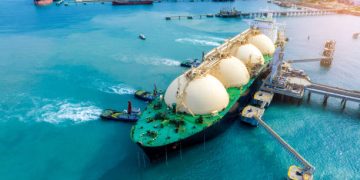Amidst the intricate global trade environment, the United States and Western governments are confronting the challenges posed by China’s expanding influence in the energy sector and the activities of heavily sanctioned nations like Venezuela, Iran, and Russia. China, the world’s largest importer of crude oil, is reportedly developing an alternative market for oil through secretive trade practices that bypass international norms and Western financial systems. China’s strategy includes receiving redirected shipments and facilitating payments from these sanctioned countries, which undermines the effectiveness of Western sanctions and the global financial order.
This situation is highlighted by reports in 2023 indicating China saved approximately ten billion dollars by procuring crude oil from Iran and Russia. The geopolitical maneuvers extend beyond mere trade; China’s significant investments in its maritime capabilities and port expansions are seen as efforts to solidify its status as a maritime superpower. This expansion not only facilitates the import of crude oil but also enhances China’s strategic maritime routes. In response, Western governments are urged to intensify their efforts to understand and counteract these evasion tactics. This includes examining the financial ties between China and sanctioned nations and their use of the Chinese yuan in international transactions, which is becoming increasingly prevalent. For example, a 2023 study noted that Russia is using the Chinese yuan for at least a fifth of its imports to evade Western sanctions.
The scenario is complicated by the socio-economic crises in countries like Venezuela, where the state-owned oil company, Petróleos de Venezuela, S.A. (PdVSA), has been redirecting its oil trade towards non-Western markets such as China. This shift is part of a broader strategy to mitigate the impact of Western sanctions, which included moving PdVSA’s European offices from Lisbon to Moscow. Despite the challenges, PdVSA has been reportedly funneling oil sales through smaller refineries and local banks in China. These developments highlight the need for enhanced regulatory oversight and accountability in international trade, particularly in the energy sector. The ongoing investigations into corrupt practices and covert operations underscore the urgency of this issue.
Transparency and accountability are essential to thwart these clandestine activities and ensure the integrity of global economic systems. As the situation evolves, the United States and its allies are tasked with developing more effective strategies to handle these complex trade dynamics, ensuring that sanctions remain an effective tool for geopolitical strategy. This may involve a more nuanced understanding of how sanctions impact different nations and the unintended consequences they might produce, guiding future policy decisions towards greater efficacy and fairness in global trade relations.
Stay current with supply chain report news at The Supply Chain Report. For international trade tools, see ADAMftd.com.
#GlobalTradeNews #SanctionsNews #MaritimeNews #InternationalRelations #OilTrade













